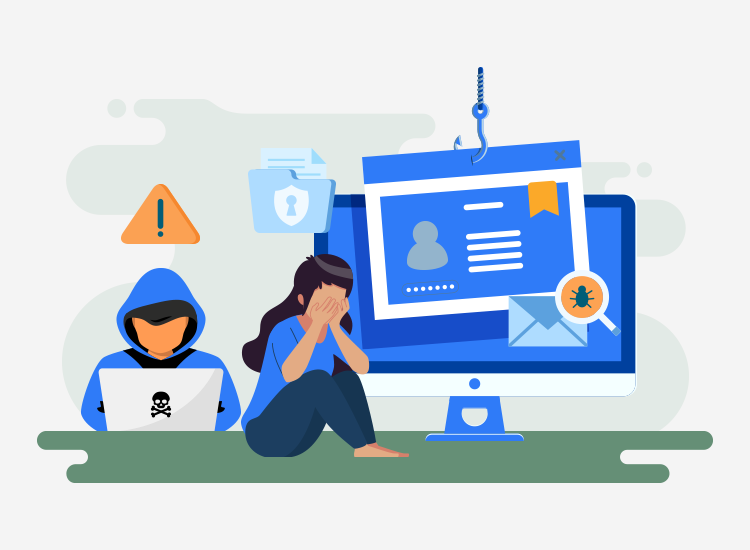
Doxing is a threat that usually targets teenagers, and it is a manifestation of cyberbullying. So, most of us, as parents, should be aware of it, as it involves kids’ identities and personal data. Thus, it can affect their mental health and lives.
To be able to recognize it, and act properly, you should be aware of what it means and how it works. So, let’s jump in.
What is doxing?
Doxing is a kind of harassment that happens online. It mainly consists of leaking personal data of someone, on the internet. The result of it might be: shaming, harming, intimidating, etc.
So, although parents might use parental control apps, or teach their kids about online dangers, the risk is still out there. This comes when someone else decides to leak children’s details online.
Attackers gather personal information of their victims, to leak it. Usually, they harvest this data online. So, they do not directly harm their victims, but the information they make public does. Hackers can then act further to steal the identity of the victims and use it, trying to make some easy money.
The result is identity theft, stalking, or even death threats. These can lead to mental trauma, suicide, or even murder. So, take it seriously!
Different types of harassment
This kind of harassment may happen in different ways. On social media, for instance, someone could post online sensitive data about their victims. For this, they create fake social media accounts. Their only purpose is to harass and humiliate people.
But it can also happen by association. In this case, villains gather personal information about their future victims, based on their connection to another one.
Moreover, hackers could ask for money from their victims, to prevent releasing their sensitive data. They could even threaten with legal action.
Hacktivism is another manifestation of it. Its name comes from the fact that activists try to achieve justice through public shaming. For this, they post private documents about powerful people involved in corruption scandals.
Who are the potential victims?
Although the first attacks were against high-profile users, now regular people can fall victim to this, including kids and teenagers.
Social media channels and online communities are a place where these things happen. For instance, Gamers involve sometimes in arguments, on online forums. And most of the time they do not come to an agreement.
Then, one of them decides to gather personal information about the second one. He searches in previous posts for the home address, social media links, and phone number. Then, he publishes these on forums where other people are likely to share his views.
So, other members use hate speech and send scary messages to the victim’s account. The reason might seem childish: an online game, jealousy, or just some misunderstanding. But the effects can be devastating.
Protective measures
Although it is impossible to prevent others from leaking personal details online, we still have some tools.
Preventing personal information about our children from being uncovered is essential. Usually, this is harvested from social media or forum posts. But it could also happen through phishing, or IP address sniffing, which can unveil the physical location.
So, limiting the availability of information is really helpful. Here are the steps:
- Teach them about privacy and personal details. They should know what type of information is dangerous to disclose, online. We should make sure that they understand the reasons for this.
- Help and guide them when they set their profiles on social media platforms.
- Make sure that their privacy settings are as private as possible. This means that only their known friends should be able to see their posts.
- Make a VPN connection available. This way, you protect the IP address, as it sends traffic through encrypted servers.
- Make sure they create and use strong passwords, and never save them in note apps or documents.
- Get them an identity theft protection solution.
Here is a list of the best free VPNs that TechRadar put together.
Things to do if your child faces doxing
Still, if any of your loved ones becomes a victim of doxing, it is good to know how to react. It is important to keep a good relationship with our kids, so they turn to us if something like this happens.
So, if it happens:
- Make sure you save screenshots and keep records of what happens. This can be used in legal actions against the perpetrator(s).
- Contact the website(s) involved, and report the leakage of personal details directly, asking to take down the dangerous posts. Also, you should ask them to suspend the attacker(s).
- Ask for help from the authorities.
- Suspend, deactivate, or delete the child’s social media accounts involved in the process. Here is how to remove personal information from Google.
- Try to foresee what else the villains might do, and prevent further damage.
- Make sure you prevent identity theft.
- Deactivating or deleting a Facebook account
Keep in mind that posting details that are available in public records is not considered illegal. But if this goes on with harassment, blackmail, or hacking, they can be charged.
So, take whatever steps it takes to legally protect your children’s lives and mental health. This list provided by UNICEF about cyberbullying can help you with it.

